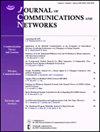A pluggable module for enabling a trusted edge device management system based on microservice
IF 2.9
3区 计算机科学
Q2 COMPUTER SCIENCE, INFORMATION SYSTEMS
引用次数: 0
Abstract
In the development of the intelligent Internet of things, edge computing plays a key role. Not only that it has the characteristics of a quick response, but it can also effectively reduce the burden of cloud computing. In addition, it can also extend the application of network edge through the coexistence and collaboration with the cloud system. However, with a large number of edge devices being deployed, the previous remote device management system will face the challenges of resource constraints and software firmware compatibility. In addition, implementing remote fault management, configuration management, accounting management, performance management, and security management through edge device management is a key task. Therefore, this study has designed and implemented a trusted edge device management system based on a microservice and a plug-and-play hardware management device. The running state of the edge device, the functions of remote device control, and system restart are monitored remotely by in- and out-of-band management modes. In addition, in terms of data transmission security, the design concept of a trusted platform module is introduced to realize data encryption and authentication, and ensure security and reliability. In this paper, the operational feasibility of management services based on containerized microservice in edge devices is verified with system benchmarking tools without affecting system performance. According to the experimental results, the proposed architecture in this study can be effective in edge device management.一个可插拔模块,用于启用基于微服务的可信边缘设备管理系统
在智能物联网的发展中,边缘计算起着关键的作用。它不仅具有快速响应的特点,还可以有效地减轻云计算的负担。此外,它还可以通过与云系统的共存和协作来扩展网络边缘的应用。然而,随着边缘设备的大量部署,以往的远程设备管理系统将面临资源限制和软件固件兼容性的挑战。此外,通过边缘设备管理实现远程故障管理、配置管理、计费管理、性能管理和安全管理是关键任务。因此,本研究设计并实现了一个基于微服务和即插即用硬件管理设备的可信边缘设备管理系统。通过带内和带外管理方式远程监控边缘设备的运行状态、远程设备控制功能和系统重启。此外,在数据传输安全方面,引入可信平台模块的设计理念,实现数据的加密和认证,保证数据的安全可靠。本文在不影响系统性能的前提下,利用系统基准测试工具验证了基于容器化微服务的管理服务在边缘设备中的运行可行性。实验结果表明,本文提出的架构能够有效地管理边缘设备。
本文章由计算机程序翻译,如有差异,请以英文原文为准。
求助全文
约1分钟内获得全文
求助全文
来源期刊
CiteScore
6.60
自引率
5.60%
发文量
66
审稿时长
14.4 months
期刊介绍:
The JOURNAL OF COMMUNICATIONS AND NETWORKS is published six times per year, and is committed to publishing high-quality papers that advance the state-of-the-art and practical applications of communications and information networks. Theoretical research contributions presenting new techniques, concepts, or analyses, applied contributions reporting on experiences and experiments, and tutorial expositions of permanent reference value are welcome. The subjects covered by this journal include all topics in communication theory and techniques, communication systems, and information networks. COMMUNICATION THEORY AND SYSTEMS WIRELESS COMMUNICATIONS NETWORKS AND SERVICES.

 求助内容:
求助内容: 应助结果提醒方式:
应助结果提醒方式:


